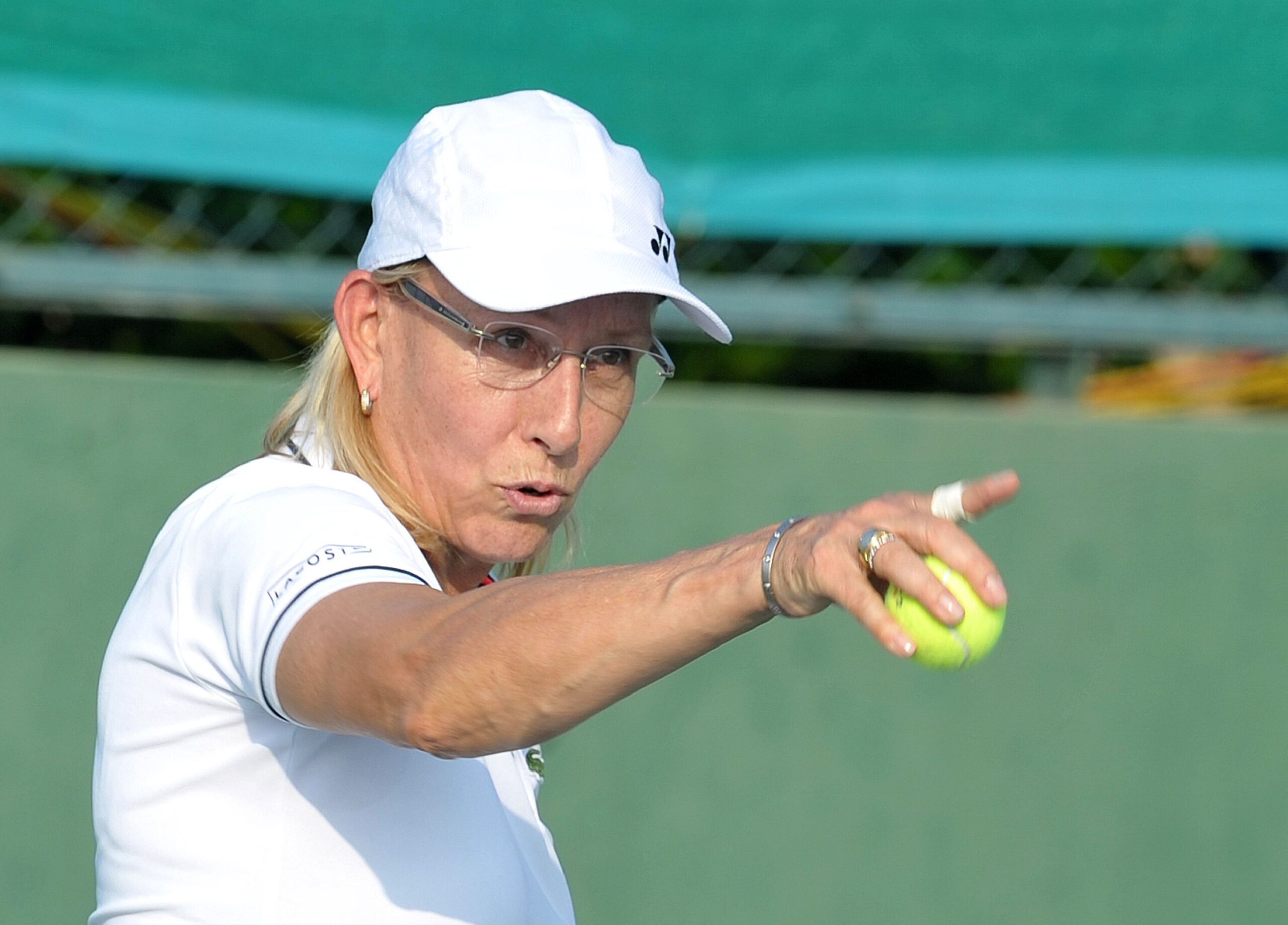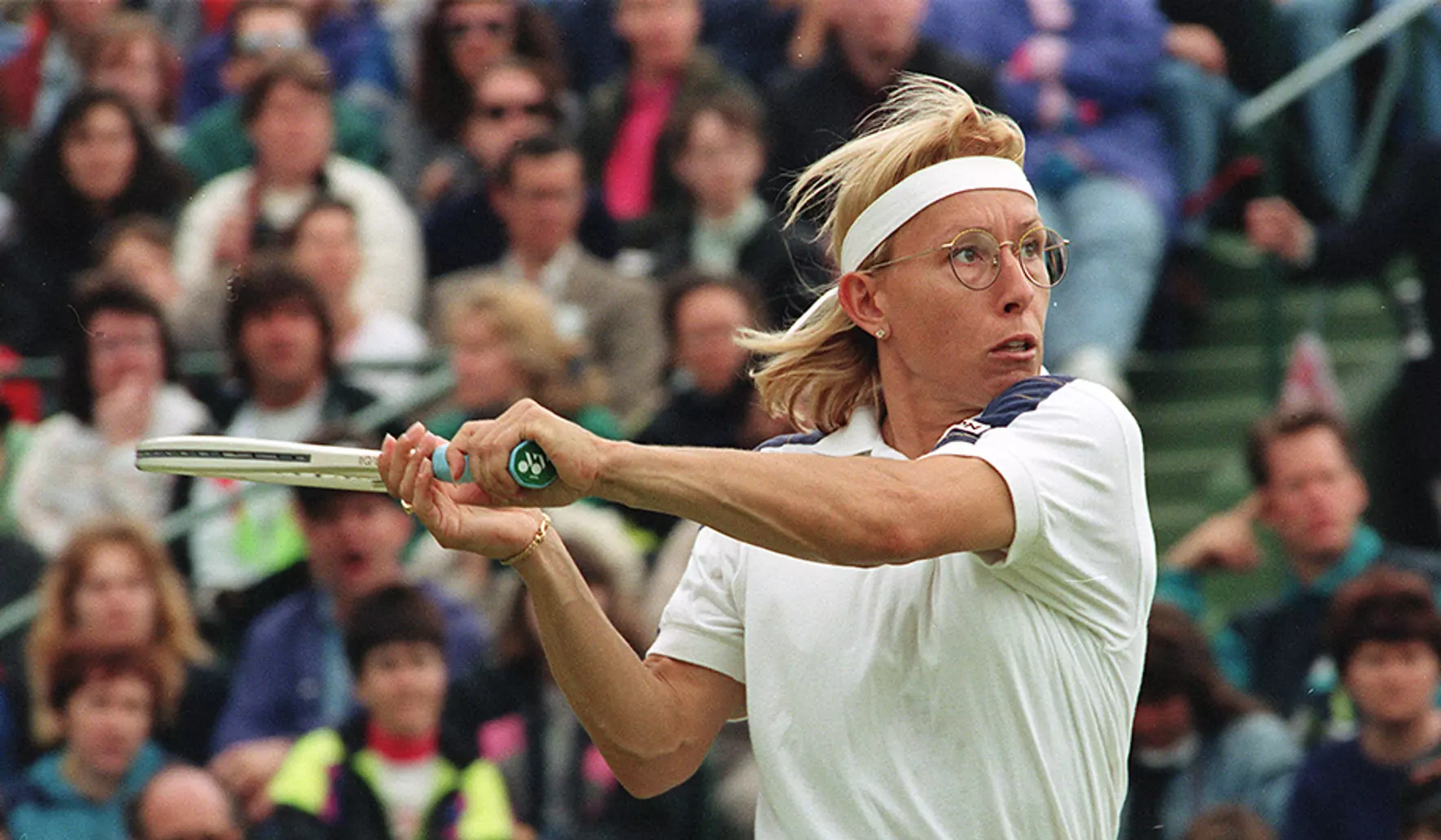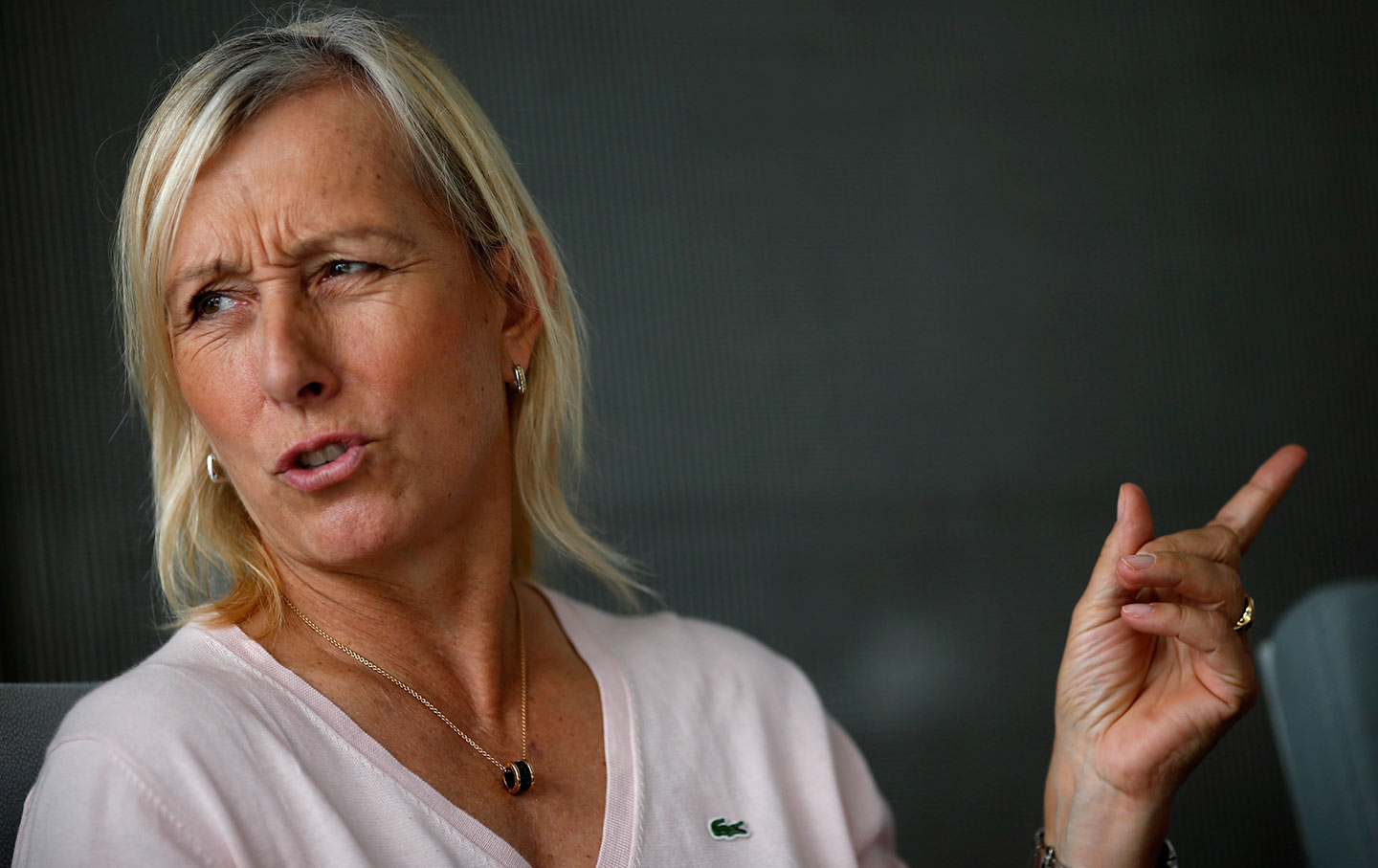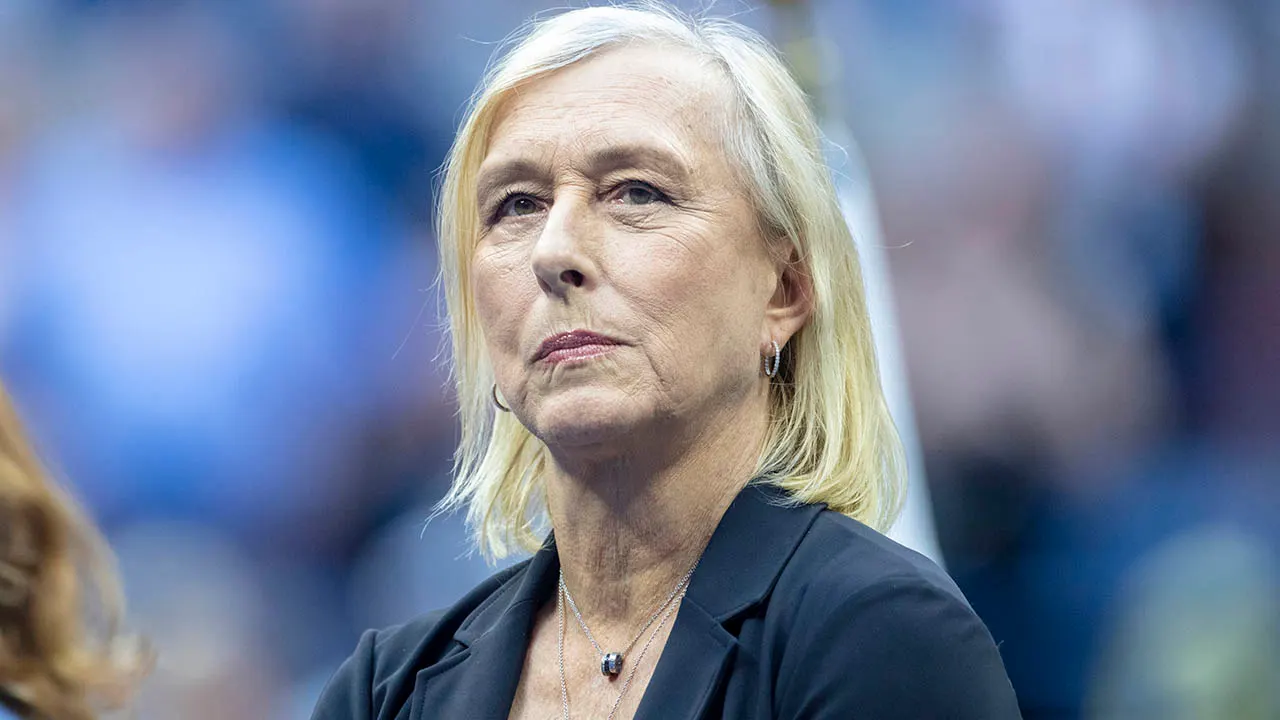Tennis legend Martina Navratilova has recently found herself at the center of a heated debate on transgender participation in women’s sports. The former World No. 1 has long been an outspoken advocate for maintaining female-only categories in athletics, a stance that has stirred controversy and accusations of being “anti-trans.” However, Navratilova remains firm, clarifying her views as not against any group but rather in favor of protecting women’s sports and spaces.

The Importance of Sex-Based Categories in Sports
Navratilova’s involvement in this debate was highlighted again when she reacted to an incident involving Kelsea Broadfoot, who was arrested in the Isle of Wight for carrying a bladed item while intoxicated. The situation escalated when Broadfoot was referred to by gender terminology that sparked debate. Navratilova retweeted a comment about the incident, adding, “Exactly what I said years ago—all of a sudden we will see a spike in ‘women’s’ crime, when it’s males doing them still.” This tweet brought to light her concerns about the potential implications of including transgender women in female-only statistics and spaces.
Responding to allegations of being “anti-trans,” Navratilova explained her position clearly: “You said I was anti trans. I am not anti trans—I am pro women. Pro women sex-based spaces. That is not anti anything.” Her words reflect a dedication to what she perceives as the integrity of women’s sports—a place where biological sex plays a crucial role due to inherent physical differences.

Navigating Controversy with Grace and Determination
In a recent discussion on the ‘Politics War Room with James Carville & Al Hunt’ podcast, Navratilova further elaborated on her views. She underscored the importance of sex-based categories in sports, emphasizing that the physical disparities between males and females should be recognized to ensure fair play. “When it comes to sports, we have categories, we have rules for a reason. Male bodies, again, are different. And there’s no way to take away the advantage that a male has, no matter how they identify,” she asserted.
Her commentary resonates with a broader audience that supports the idea of having distinct divisions in sports based on biological sex, to preserve competition integrity and safety. Navratilova’s advocacy extends beyond the courts, highlighting a critical issue in the evolving landscape of sports and gender identity.

At 68, Navratilova continues to wield significant influence not only in tennis but also in the broader cultural discussions surrounding gender and sports. Her steadfast approach to this contentious issue shows her commitment to what she believes is a fair interpretation of gender-specific sports regulations. Despite facing criticism, she stands as a beacon for those who advocate for the protection and preservation of women’s sports and spaces.
Martina Navratilova’s legacy as a champion of tennis is undisputed, but her current battles off the court are just as fierce. As society navigates these complex gender discussions, voices like hers play a crucial role in shaping the dialogue and policies that will define the future of sports for women.

I am a writer with a passion for technology and gaming. I write about a variety of subjects, including Esports, Games, Shows, and Sports. I create engaging and informative content for Hiptoro.

